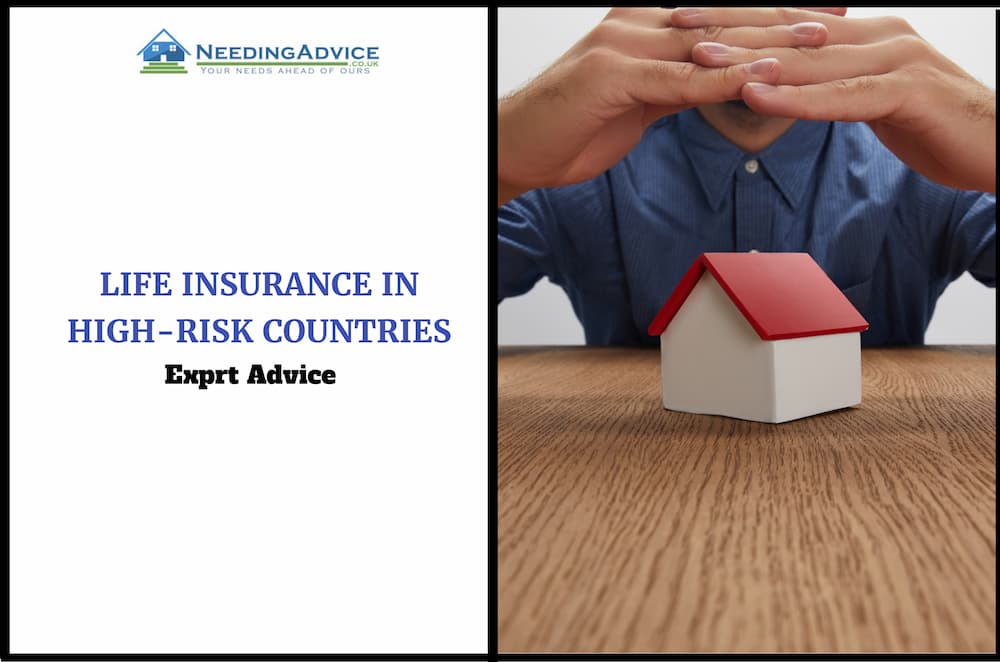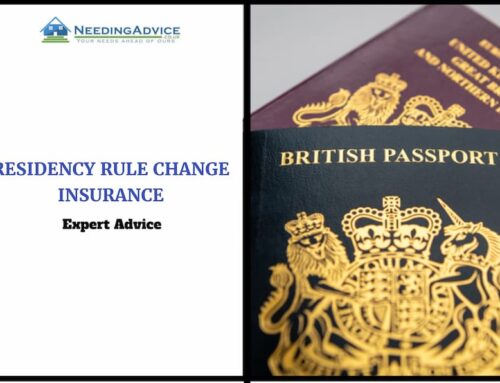For people and families, life insurance is an essential safety net since it offers financial stability in the case of the policyholder’s passing. However, for people who live in or frequently visit high-risk nations, getting life insurance can be far more difficult and costly.
These are countries whose day-to-day living is made more hazardous by political unrest, high crime rates, or widespread health problems. The complexities of obtaining life insurance in nations at high risk are examined in this article, which also provides tools, advice, and resources to help readers deal with these obstacles.
Insurance Warning
If you are considering life insurance and either reside in or travel frequently to high-risk countries, be prepared for potential challenges. These regions are often associated with increased risks due to political instability, high crime rates, or severe health issues, which can lead to higher premiums, restricted coverage, or outright policy denial. It is crucial to thoroughly review any insurance policy’s terms and exclusions and to seek advice from professionals who specialize in high-risk insurance. Careful consideration and expert guidance are essential to ensure that your financial security needs are adequately met and that your coverage aligns with the unique risks you face.
Introduction to Life Insurance in High-Risk Countries
What Constitutes a High-Risk Country?
Countries classified as high-risk have circumstances that greatly raise the possibility of disease, accident, or death. These circumstances could consist of:
Countries experiencing protracted hostilities, civil wars, or notable political turmoil are considered unstable politically.
Health risks: nations with high infection rates, inadequate medical facilities, or protracted pandemics.
Crime rates: Places with high rates of kidnapping, terrorism, or violent crime.
Why Is Life Insurance More Complex in High-Risk Countries?
Insurance firms use risk analysis to set eligibility and premiums. Increased risk corresponds to increased premiums or even coverage refusal. Because of their greater apprehension about the possibility of a claim in high-risk locations, insurers have stricter underwriting procedures.
Life Insurance in High-Risk Countries
Life insurance in high-risk countries can be more complex due to the increased risks associated with these regions. Insurers often consider factors like political instability, conflict, and high crime rates when determining coverage and premiums. Here are some key points:
- High-Risk Countries: Countries often considered high-risk by insurers include Afghanistan, Iraq, Syria, Yemen, and North Korea, among others.
- Impact on Premiums: Living in or travelling to high-risk countries can lead to higher premiums or even exclusions in life insurance policies.
- Specialised Policies: Some insurers offer specialised policies for expatriates or individuals frequently travelling to high-risk areas. For example, some companies provide term life insurance tailored for expatriates and international travellers.
- Group Protection: Some companies offer group protection policies that consider high-risk countries when providing coverage for employees.
Suppose you have specific needs or are looking for coverage in a particular high-risk country. In that case, it might be helpful to consult with an insurance adviser who can provide tailored recommendations.
Types of Life Insurance Policies Available
Traditional Term Life Insurance
Term life insurance offers protection for a predetermined time. Even though it is typically the least expensive kind of life insurance, it might be difficult to get in high-risk nations. Higher premiums and a lot of documentation may be required by insurers.
Whole Life Insurance
Whole life insurance has a savings component and provides coverage for the duration of the policyholder’s life. Because it offers lifetime coverage and the possibility of cash value buildup, it may be a more sensible choice for people in high-risk situations, even if it is more costly than term life insurance.
Expatriate Life Insurance
These policies are tailored to expatriates and serve those who are not residing in their country of origin. Expatriate life insurance frequently offers extensive coverage that takes into account the particular risks connected to living overseas.
Complex Elements of Life Insurance in High-Risk Countries
Risk Factors and Underwriting Criteria
Insurance companies assess several risk factors, such as:
Frequency of travel: Visiting high-risk locations frequently raises the perception of danger.
Occupation: Coverage terms are affected by occupations with increased risk exposure, such as journalism or humanitarian work.
Health history: The terms of the policy may be impacted by pre-existing conditions and general health.
Navigating Policy Exclusions
Exclusions related to high-risk activities or areas may be included in policies. To guarantee sufficient coverage, it is essential to comprehend these exclusions. Policyholders should carefully look over the terms and, if needed, negotiate changes.
Warning: When considering life insurance in high-risk countries, it is vital to be aware of the increased possibility of policy denial or restrictive terms, which may significantly impact your financial planning. Always consult insurance professionals specialising in high-risk regions to navigate these complexities successfully.
Tips for Overcoming Demanding Areas
Finding the Right Insurer
Navigating the world of life insurance in high-risk countries can be complex and challenging. Insurance companies consider various risk factors when underwriting policies, such as the frequency of travel, occupation, and health history. These factors can impact the terms and coverage of the policy, making it crucial for individuals to understand their specific circumstances.
Investigate and Compare: Look into a number of insurers to identify those with expertise in high-risk fields.
Specialised Brokers: Deal with brokers skilled at negotiating better rates and comprehending the subtleties of high-risk insurance.
Documentation and Proof: When seeking life insurance in high-risk areas, it is important to thoroughly research and compare the documentation requirements of different insurers. Providing proof of safety measures, such as security guards or medical evacuation plans, can help alleviate concerns and potentially lower premiums.
Consider Local Coverage: In some cases, local insurance providers may offer better coverage options for individuals in high-risk countries. Investigate local insurance companies, as they may have a better understanding of the specific risks and challenges in that region.
Obtaining life insurance in high-risk countries can be challenging but not impossible. By understanding the risk factors involved, comparing different insurers, and considering specialized brokers or local coverage options, individuals can find suitable coverage that meets their needs and provides peace
Health Records: Keep thorough and current health records.
Security Measures: Track the safety precautions and personal security measures you take when traveling or living in high-risk areas.
Expert Advice: To enhance applications, consult financial or legal counsel.
Frequently Asked Questions (FAQs)
What are the most frequent grounds given in high-risk nations for the denial of life insurance applications?
Frequently visiting conflict areas, working in dangerous jobs, and having insufficient health paperwork are common causes. These problems can be lessened by making sure all documentation is thorough and correct.
Should I reside in a nation with a high risk of natural disasters?
Indeed, but it can also mean paying more, having to deal with more specialized brokers or insurers, and producing a lot more paperwork.
If I live in a high-risk location, how can I reduce my premiums?
Lowering premiums can be achieved by putting personal protection measures into place and recording them, staying well, and consulting a specialist.
Historical Evolution of Life Insurance in High-Risk Areas
The landscape of life insurance in high-risk places has changed dramatically since the early policies frequently excluded coverage for those living in such areas. In order to meet the rising demand, insurers created more comprehensive policies throughout time as globalization grew. The introduction of expatriate insurance and the rise of specialist brokers and insurers specializing in high-risk coverage are noteworthy turning points.
In conclusion, acquiring life insurance in nations at high risk poses particular difficulties, although it is not unachievable. People can get the coverage they require to safeguard their loved ones by being aware of the intricacies involved, creating thorough applications, and consulting a specialist.






